Yes, There Is A Right—And A Wrong—Potato To Use For Mashed Potatoes
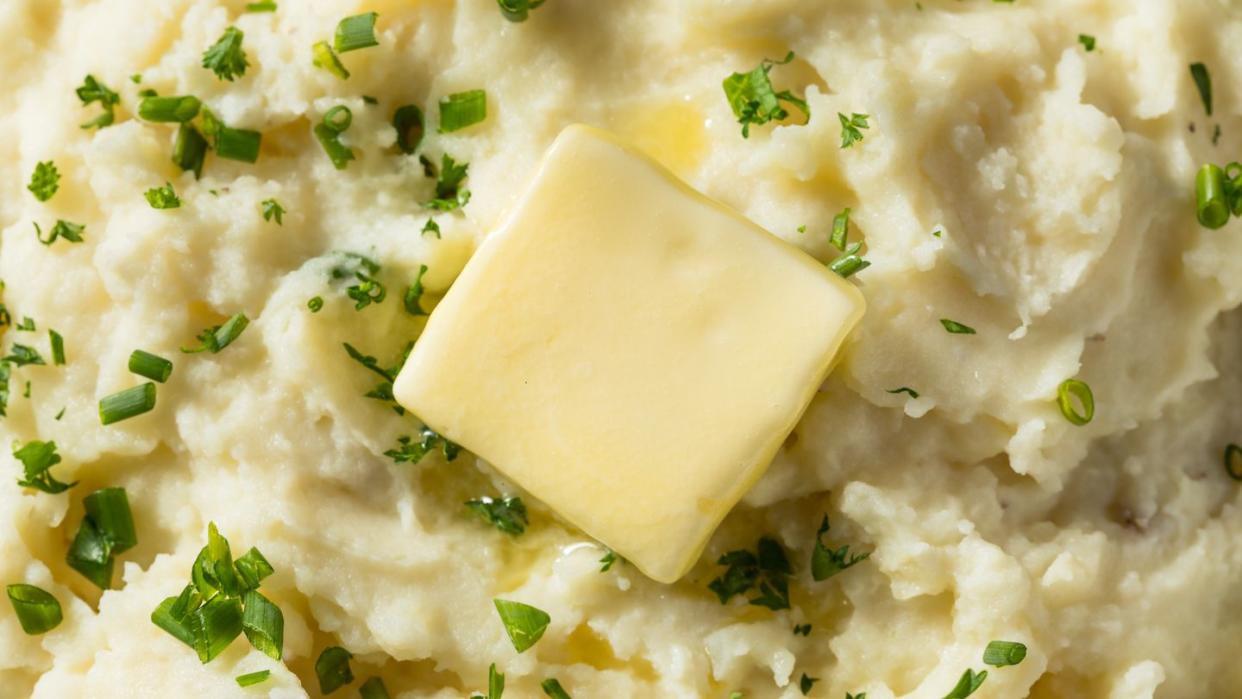
"Hearst Magazines and Yahoo may earn commission or revenue on some items through these links."
Once the weather starts to get chilly, we suddenly get the urge to eat mashed potatoes with everything. They’re the perfect accompaniment to a cozy stew and Southern-style dinner, and the MVP of any Thanksgiving spread.
On their own, mashed potatoes are a blank slate that lends starchy, buttery richness to whatever you’re eating. They’re also infinitely customizable; you can take them up a notch by incorporating roasted garlic, sour cream and onion, or plenty of cheese. But a major appeal of mashed potatoes is how simple it is to prepare: just boil, mash, and season with lots of dairy and salt.
But when you’re at the supermarket, you might hit a snag when you reach the produce department. There are so many potato varieties available that it’s nearly impossible to choose between them. You may think that, since they look so similar, they’d taste virtually the same, right?
Wrong. Each variety of potato brings a unique flavor and texture to a dish. And when you transform them into a mash, those distinct characteristics are even more obvious. So depending on what finished product you’re after, you want to pick up particular potatoes when you’re at the grocery store.
We’re breaking down every type of potato and how they can impact your mash. So next time you’re making a batch of beef bourguignon or planning your holiday feast, you can confidently choose your own mashed potato adventure.
Russet
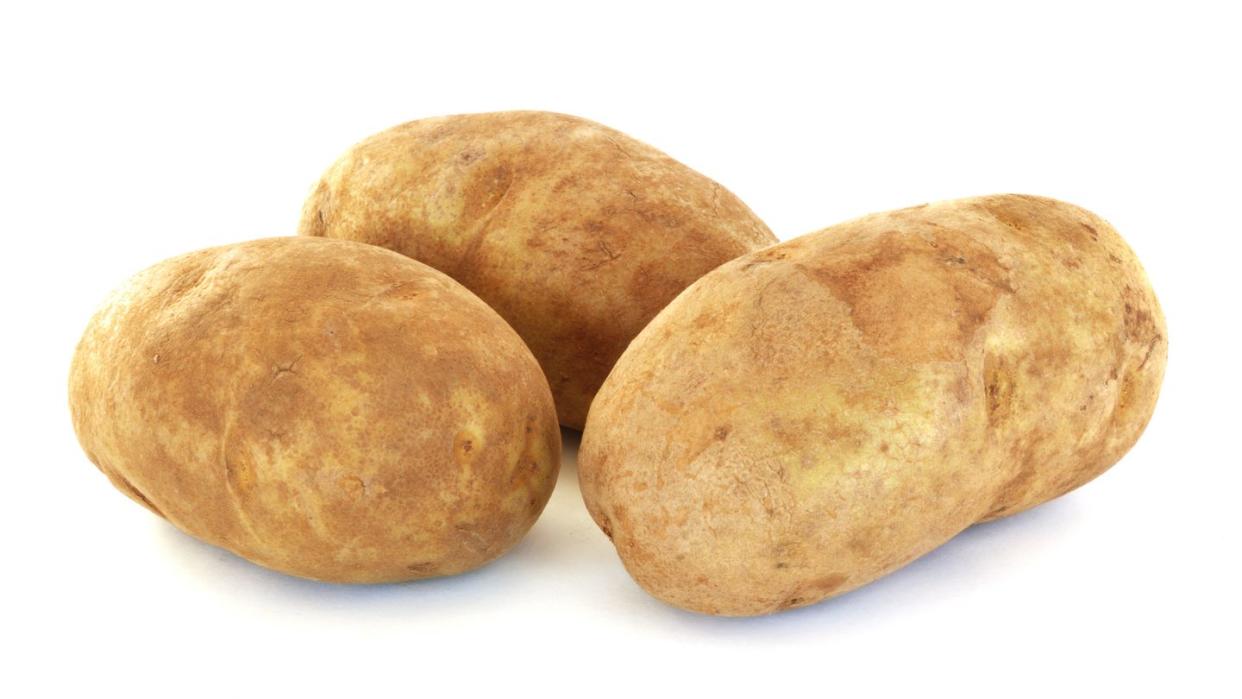
Russets are many home cooks' go-to spud when it comes to making mashed potatoes, and for good reason. They're typically the most cost-effective option. Russets also run fairly large, which means you can peel fewer potatoes than you would with smaller varieties.
From a flavor and texture perspective, we love russets because of their starch content. They naturally have a lower moisture content than other types of potatoes. This has two distinct benefits when it comes to making mashed potatoes. Firstly, russet potatoes have the ability to absorb a lot of liquid; that means most of the moisture in your mash will come from the butter and milk. It'll ultimately leave you with a more richly-flavored dish.
Secondly, they also break down more easily than other potato varieties on the market. The starches present in the chemical structure of a russet, when cooked, become extremely soft and fluffy.
One disadvantage when it comes to russets is that they have a thick, dry skin. It's edible, sure, but it's not exactly the most appetizing addition to your mash. So peeling is a highly recommended, if not essential, step when making mash with russets.
So when you want to make a batch of mashed potatoes that are soft as a cloud and don't mind going through the peeling process, russets are the tuber for you.
Yukon Gold
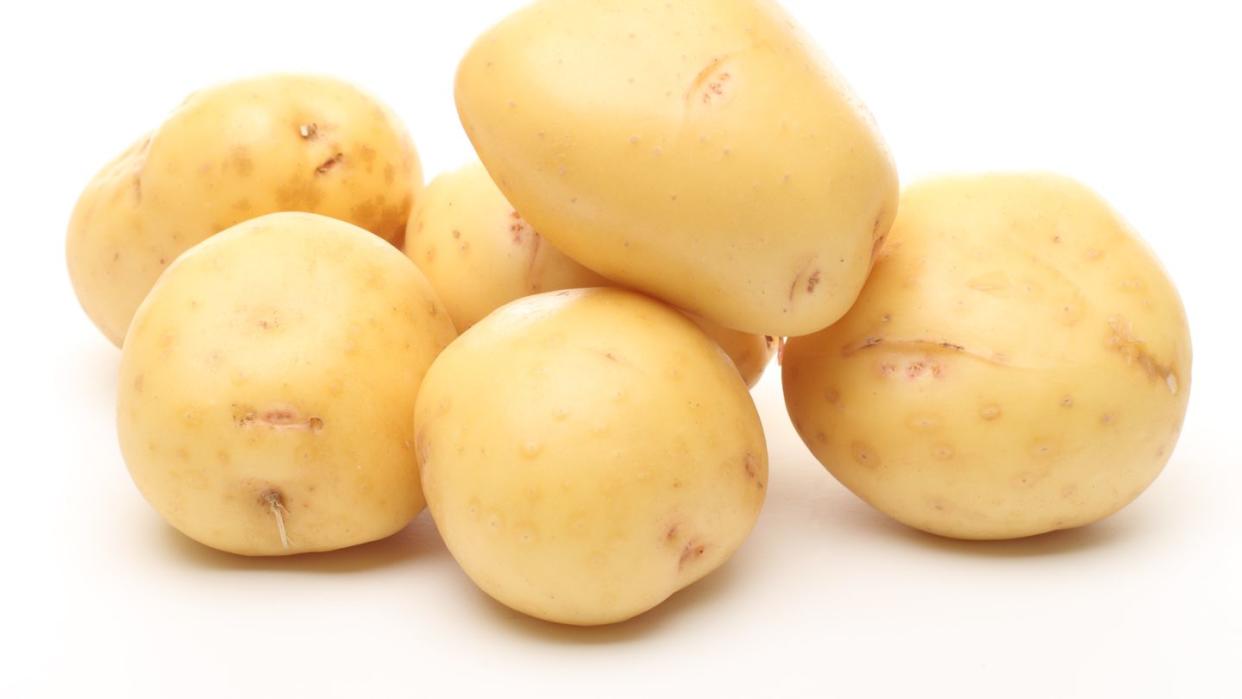
The second-most-popular pick for mashed potatoes is Yukon Gold. And unlike the starchy russet, a Yukon Gold is considered a more waxy potato. What this means is that they have much more natural moisture and a relatively low starch content.
Since Yukon Golds have plenty of natural, potato-flavored liquid, you won't necessarily need as much dairy to reach your desired consistency. The potato flavor will also be more concentrated than it would be with a russet-based mash.
The lower starch levels also mean that cooked Yukon Golds maintain their structure. You'll need to use more elbow grease (or even a ricer or food mill) to achieve a smooth, lump-free finished product. But once you get there, your mashed potatoes will be naturally richer and creamier than their starchy counterparts. Some Yukon Gold skeptics will malign this texture and call it "gluey," but we love the consistency as a structured counterbalance to brothy soups and stews.
Another perk of Yukon Golds? Their skin is thin and delicate enough that you don't necessarily need to remove them. So this variety is a great pick if you're after a chunkier mash and want to skip the pesky peeling process. But they're also a no-brainer if you want your mashed potatoes to be thicker, creamier, and more substantial.
Red
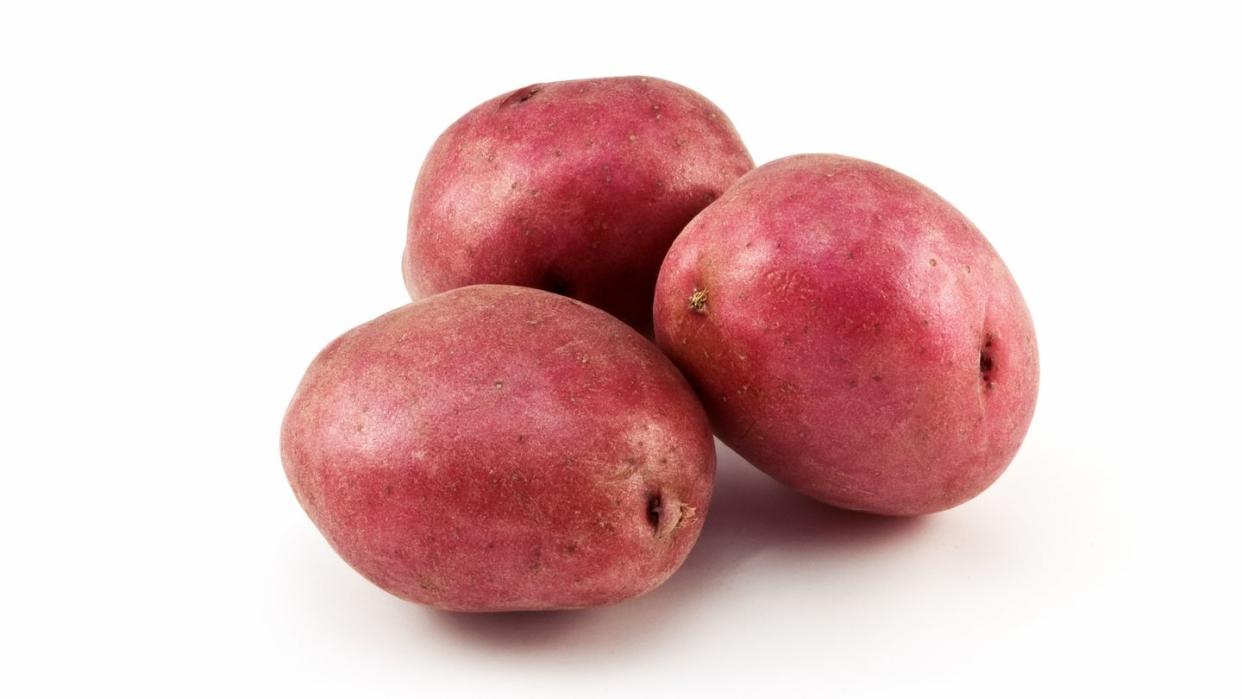
If russet potatoes are on one end of the starch spectrum, red potatoes are the polar opposite. These small, vibrant colored spuds are even waxier than Yukon Golds. They have an extremely firm texture that holds up even after being boiled. And since this variety leans on the smaller side, you'll need much more of them to make enough mash for a crowd. That also means that going through the effort to peel them is an unnecessarily arduous task.
Red potatoes are great if you want a dense, creamy mash that still has some chunks distributed throughout. It's also a good choice if you want peels in your potatoes—because it's way too much work to peel red potatoes in the first place.
Sweet Potato
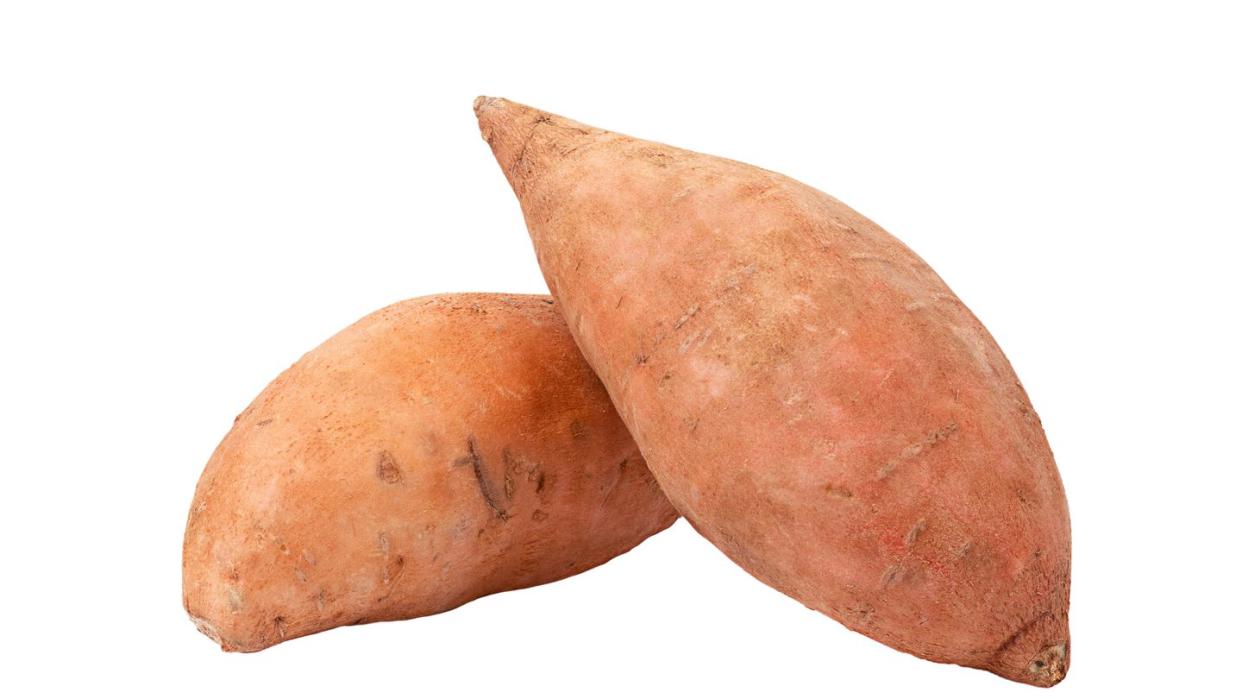
Surprise, sweet potatoes aren't technically in the potato family. Both sweet potatoes and yams (which are different things but used interchangeably in the U.S.) are their own types of root vegetables with their own unique structures. Even individual varieties, like Japanese sweet potatoes and garnet yams, fall into different spots on the starchy spectrum.
But, for mashing purposes, you can reasonably expect to buy vibrant orange sweet potatoes. And those typically have a texture somewhere in between a russet and a Yukon Gold. They're relatively dry, yet still stay somewhat firm throughout the cooking process.
And, of course, you can expect mashed potatoes made with sweet potatoes to taste sweet—it's in the name, after all. Whether you plan to top them with marshmallows or a crumbly streusel, mashed sweet potatoes are a beloved starchy and sweet side that belong in a category all their own.
You Might Also Like
